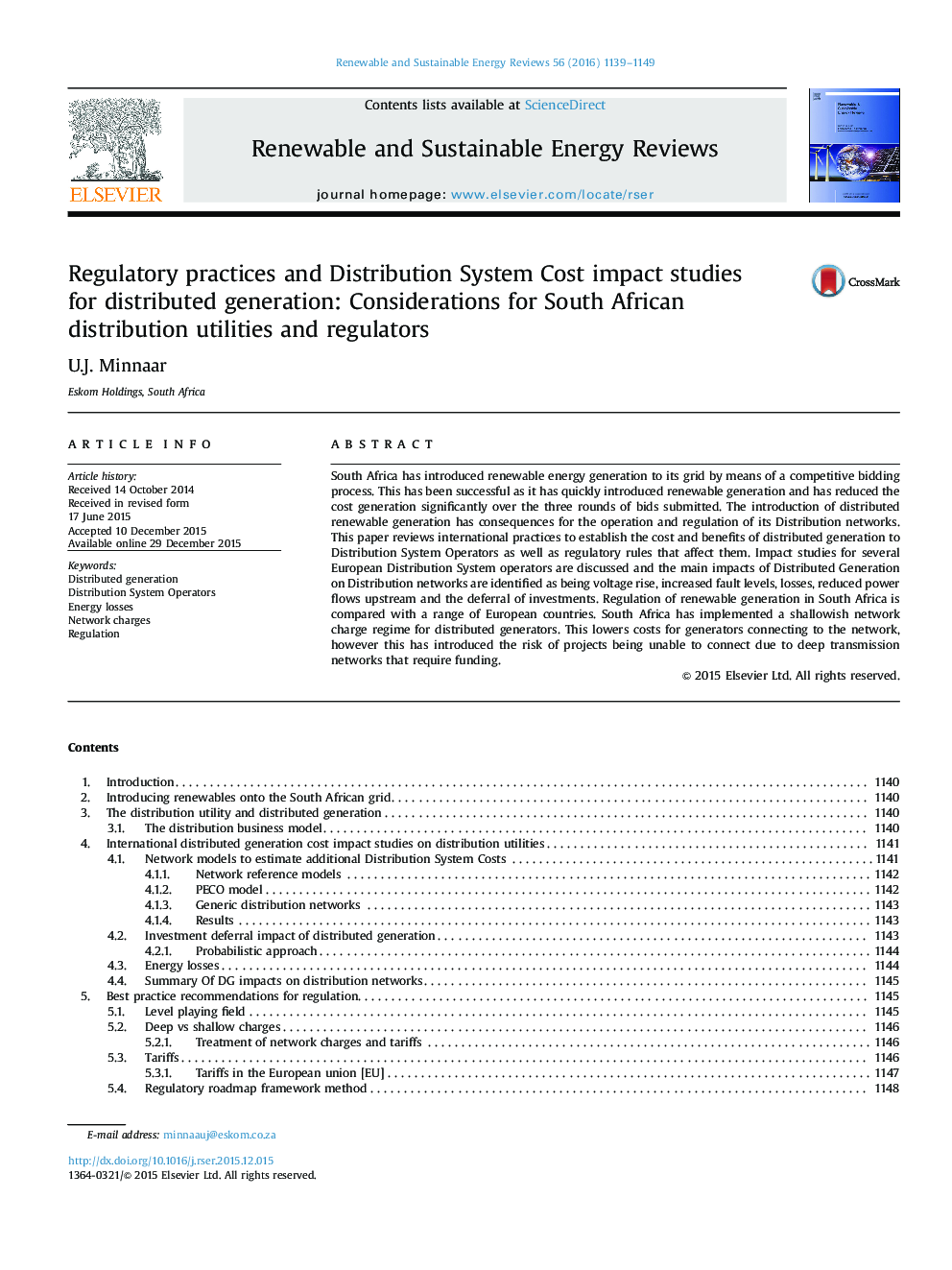| Article ID | Journal | Published Year | Pages | File Type |
|---|---|---|---|---|
| 8115024 | Renewable and Sustainable Energy Reviews | 2016 | 11 Pages |
Abstract
South Africa has introduced renewable energy generation to its grid by means of a competitive bidding process. This has been successful as it has quickly introduced renewable generation and has reduced the cost generation significantly over the three rounds of bids submitted. The introduction of distributed renewable generation has consequences for the operation and regulation of its Distribution networks. This paper reviews international practices to establish the cost and benefits of distributed generation to Distribution System Operators as well as regulatory rules that affect them. Impact studies for several European Distribution System operators are discussed and the main impacts of Distributed Generation on Distribution networks are identified as being voltage rise, increased fault levels, losses, reduced power flows upstream and the deferral of investments. Regulation of renewable generation in South Africa is compared with a range of European countries. South Africa has implemented a shallowish network charge regime for distributed generators. This lowers costs for generators connecting to the network, however this has introduced the risk of projects being unable to connect due to deep transmission networks that require funding.
Related Topics
Physical Sciences and Engineering
Energy
Renewable Energy, Sustainability and the Environment
Authors
U.J. Minnaar,
